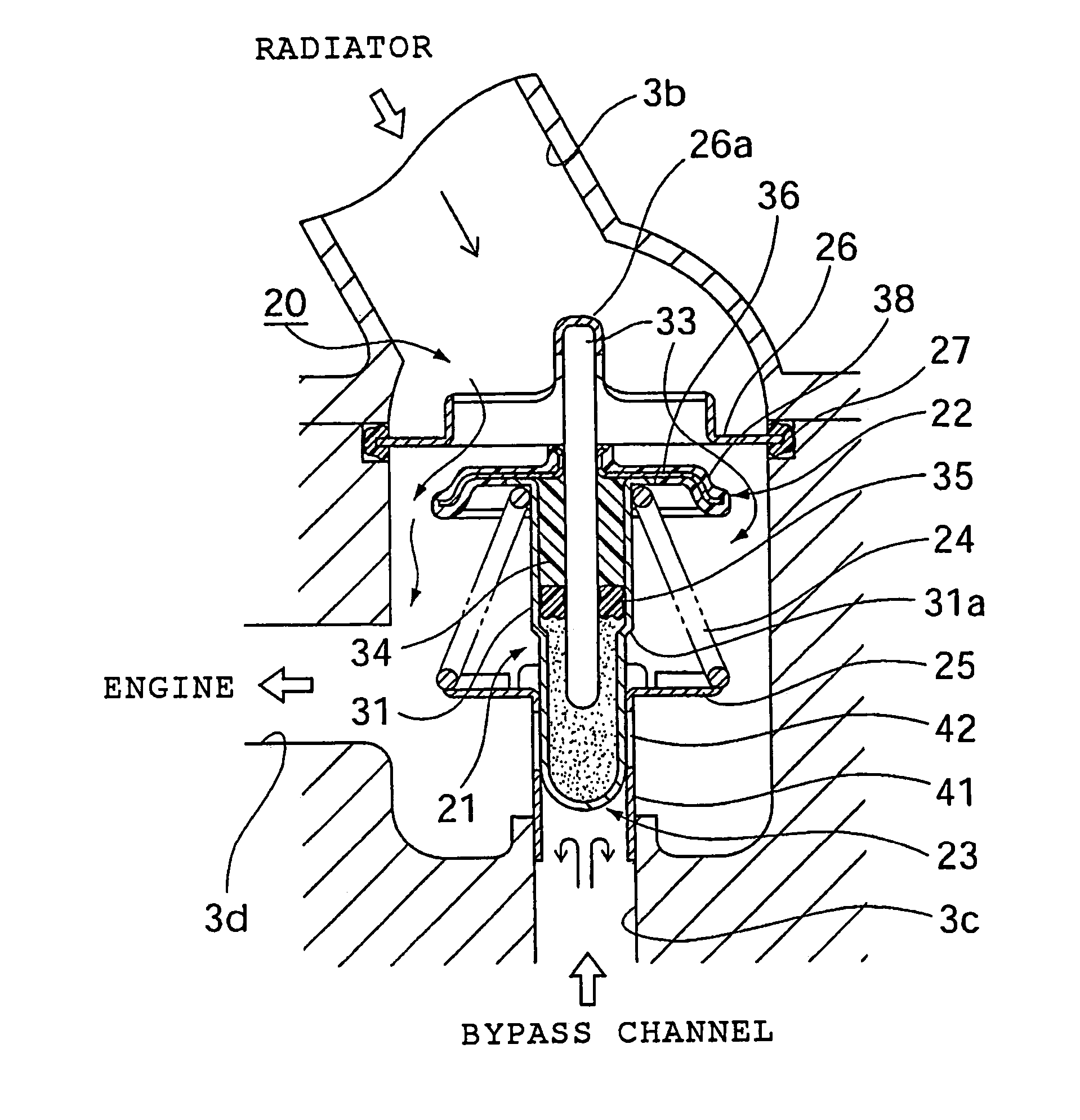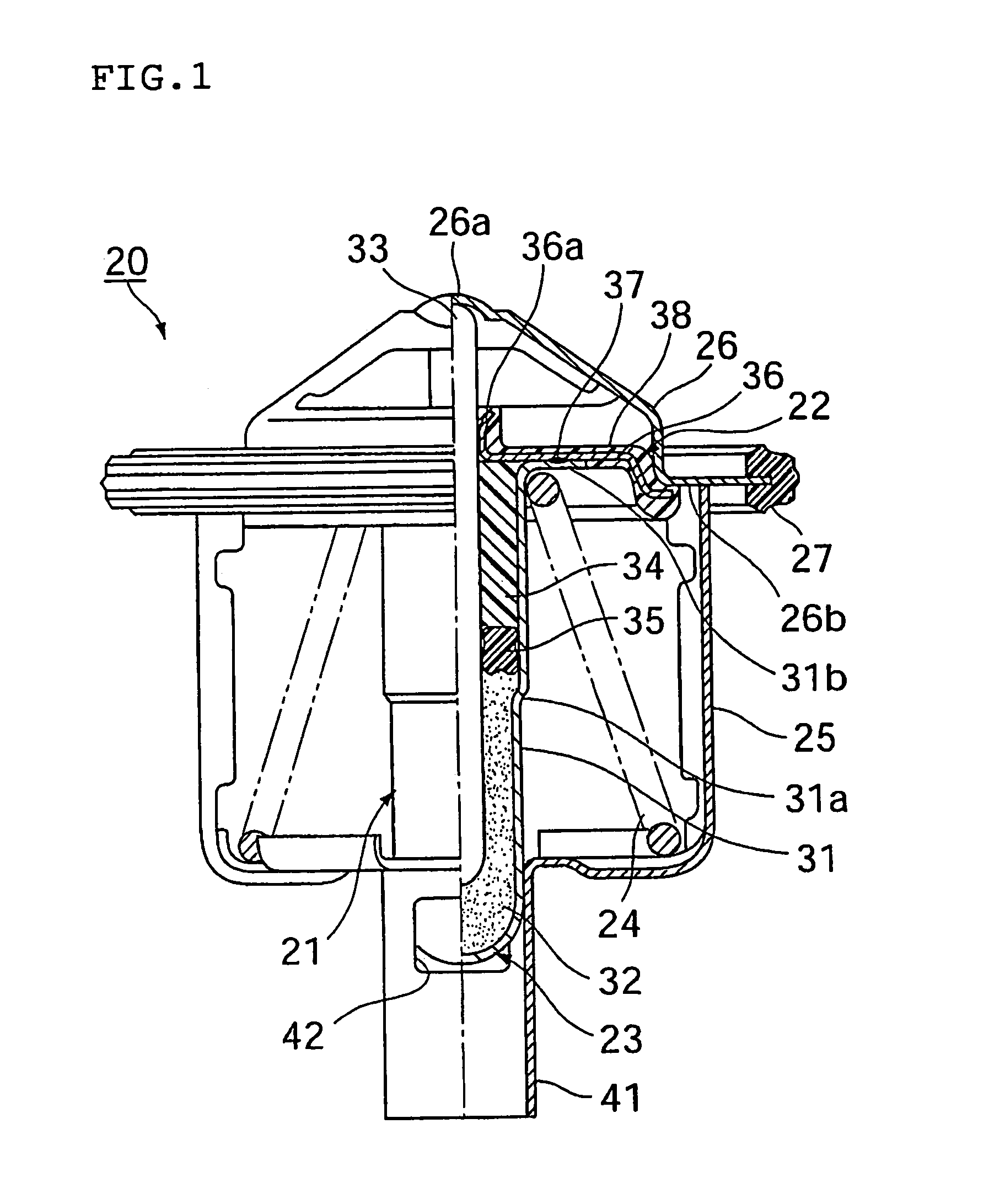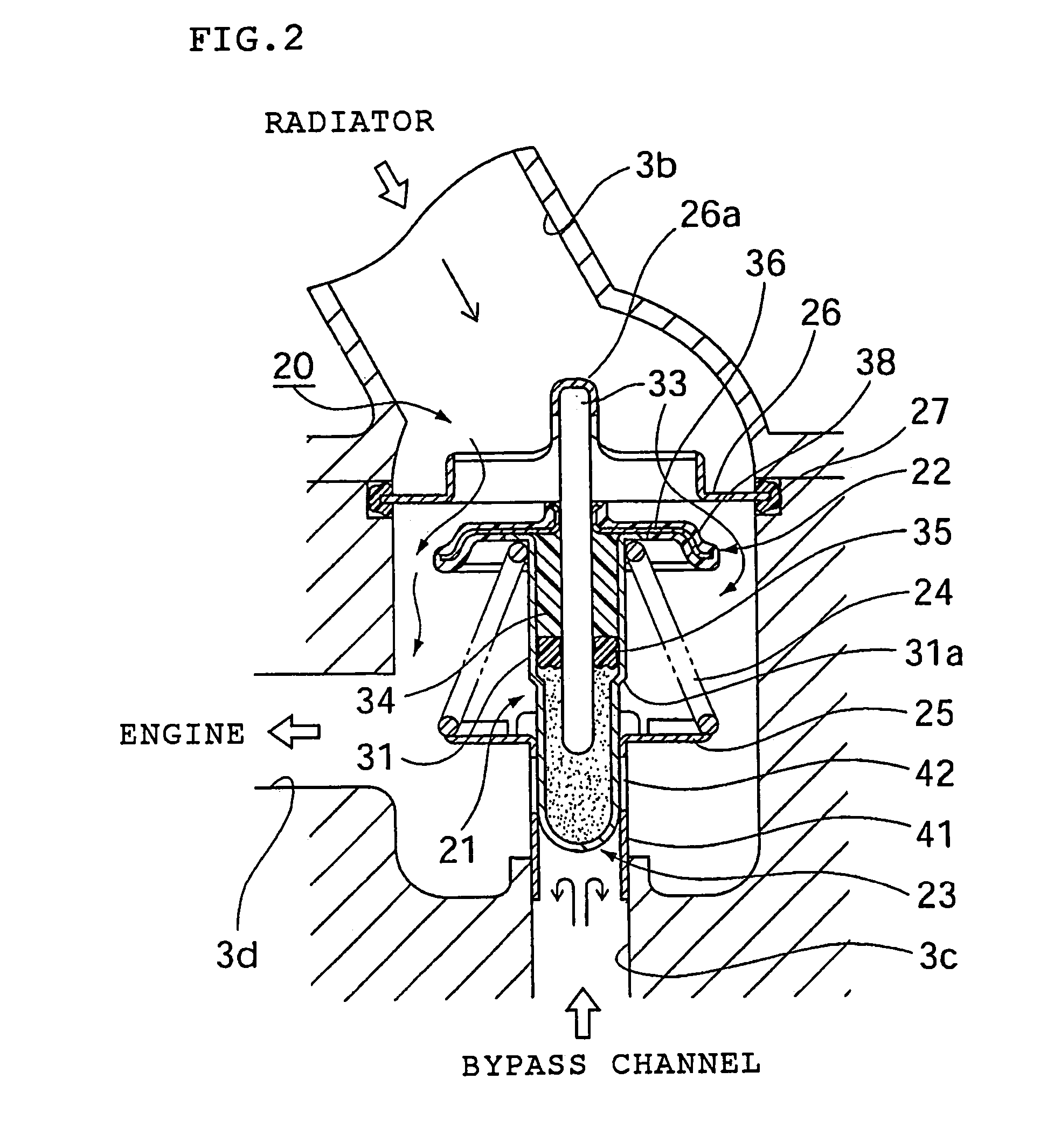Thermostat
a technology of thermostats and components, applied in the direction of machines/engines, process and machine control, instruments, etc., can solve the problems of difficult management of components, insufficient assembly and assembly, and many components, and achieve superior assembly and workability, reduce costs, and reduce components. the effect of number of components
- Summary
- Abstract
- Description
- Claims
- Application Information
AI Technical Summary
Benefits of technology
Problems solved by technology
Method used
Image
Examples
Embodiment Construction
[0050]FIG. 1 to FIG. 5 show an embodiment of the thermostatic device pertaining to the present invention, and, in the present embodiment, explained is a case of the [thermostat device] being provided to the inlet side of the engine in an engine cooling system for controlling the coolant temperature.
[0051]In these diagrams, the thermostat device, which is a temperature-sensing automatic valve, represented with reference numeral 20, as evident from FIG. 2 and FIG. 6 illustrating the conventional example described above, is attached at the intersection of the cooling channel 3b on the radiator 2 side, and the bypass channel 3c from the engine outlet 1c side, and is used to selectively switch the flow of the coolant in the first and second fluid channels constituted with the foregoing passages and supplying such coolant to the cooling channel 3d leading to the engine inlet 1b. Here, an explanation is provided based on the assumption that the first fluid channel leads to the cooling chan...
PUM
 Login to View More
Login to View More Abstract
Description
Claims
Application Information
 Login to View More
Login to View More - R&D
- Intellectual Property
- Life Sciences
- Materials
- Tech Scout
- Unparalleled Data Quality
- Higher Quality Content
- 60% Fewer Hallucinations
Browse by: Latest US Patents, China's latest patents, Technical Efficacy Thesaurus, Application Domain, Technology Topic, Popular Technical Reports.
© 2025 PatSnap. All rights reserved.Legal|Privacy policy|Modern Slavery Act Transparency Statement|Sitemap|About US| Contact US: help@patsnap.com



